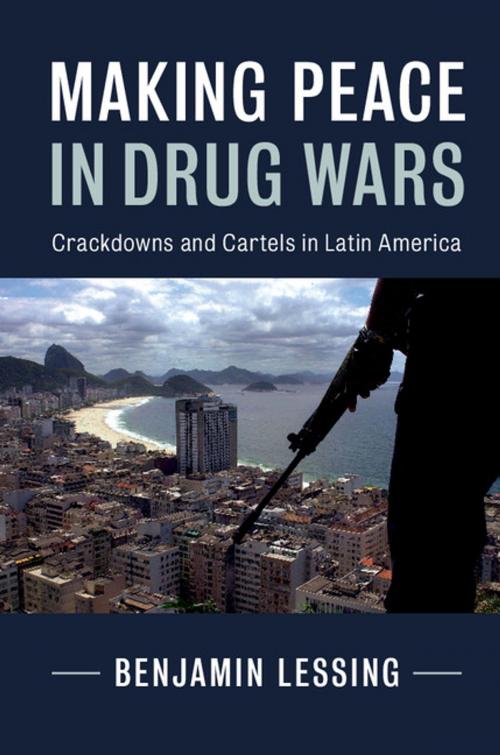Making Peace in Drug Wars
Crackdowns and Cartels in Latin America
Nonfiction, Social & Cultural Studies, Political Science, International, Foreign Legal Systems, Social Science| Author: | Benjamin Lessing | ISBN: | 9781108187947 |
| Publisher: | Cambridge University Press | Publication: | December 7, 2017 |
| Imprint: | Cambridge University Press | Language: | English |
| Author: | Benjamin Lessing |
| ISBN: | 9781108187947 |
| Publisher: | Cambridge University Press |
| Publication: | December 7, 2017 |
| Imprint: | Cambridge University Press |
| Language: | English |
Over the past thirty years, a new form of conflict has ravaged Latin America's largest countries, with well-armed drug cartels fighting not only one another but the state itself. In Colombia, Mexico, and Brazil, leaders cracked down on cartels in hopes of restoring the rule of law and the state's monopoly on force. Instead, cartels fought back - with bullets and bribes - driving spirals of violence and corruption that make mockeries of leaders' state-building aims. Fortunately, some policy reforms quickly curtailed cartel-state conflict, but they proved tragically difficult to sustain. Why do cartels fight states, if not to topple or secede from them? Why do some state crackdowns trigger and exacerbate cartel-state conflict, while others curb it? This study argues that brute-force repression generates incentives for cartels to fight back, while policies that condition repression on cartel violence can effectively deter cartel-state conflict. The politics of drug war, however, make conditional policies all too fragile.
Over the past thirty years, a new form of conflict has ravaged Latin America's largest countries, with well-armed drug cartels fighting not only one another but the state itself. In Colombia, Mexico, and Brazil, leaders cracked down on cartels in hopes of restoring the rule of law and the state's monopoly on force. Instead, cartels fought back - with bullets and bribes - driving spirals of violence and corruption that make mockeries of leaders' state-building aims. Fortunately, some policy reforms quickly curtailed cartel-state conflict, but they proved tragically difficult to sustain. Why do cartels fight states, if not to topple or secede from them? Why do some state crackdowns trigger and exacerbate cartel-state conflict, while others curb it? This study argues that brute-force repression generates incentives for cartels to fight back, while policies that condition repression on cartel violence can effectively deter cartel-state conflict. The politics of drug war, however, make conditional policies all too fragile.















